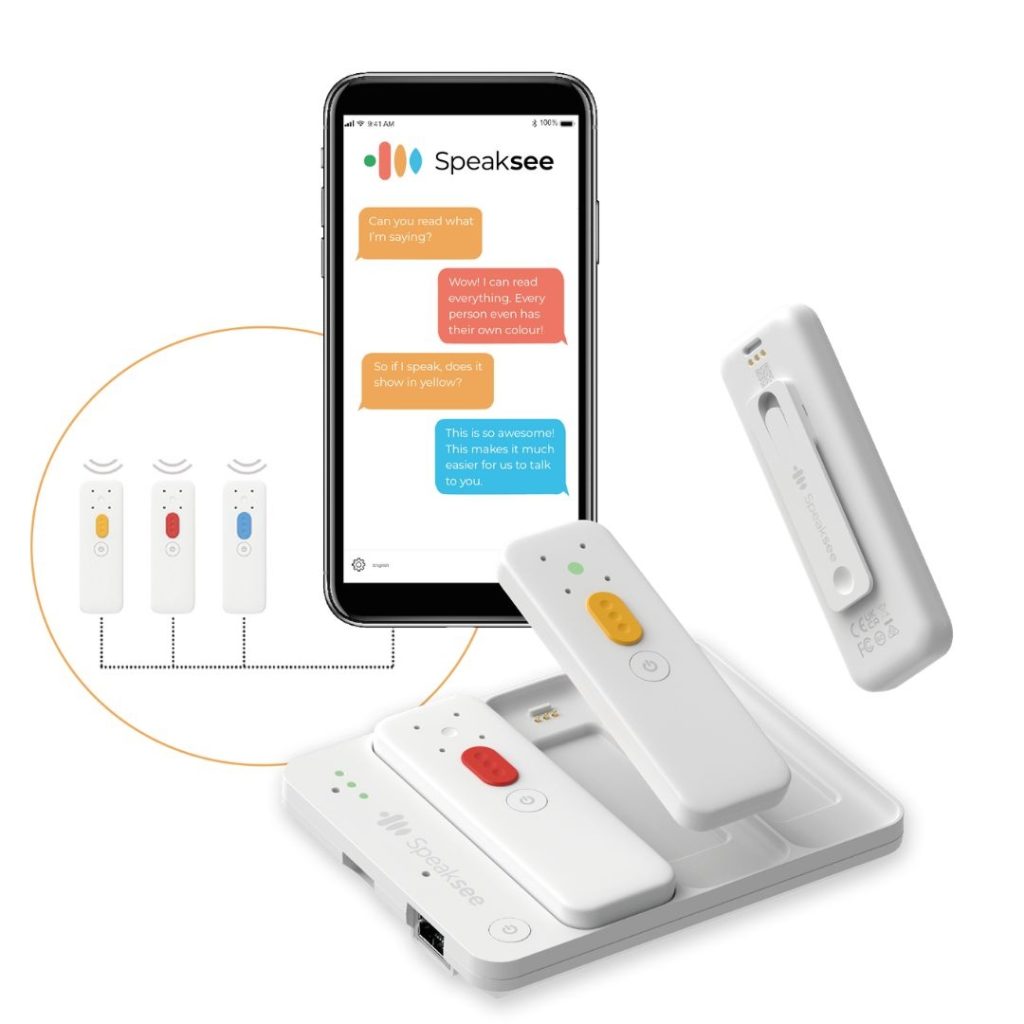An software developed by a Dutch founder for his deaf parents raises $1 million.
Jari Hazelebach worked as a full-time interpreter growing up. He assisted his deaf parents in communicating from an early age, as the society at large was mostly unaware of the challenges faced by the 430 million people who had a disabling hearing loss.
“My parents’ hearing impairment made group conversations nearly impossible, even though they could lip-read,” Hazelebach said to TNW. Christmas get-togethers with the family were difficult too.
Hazelebach founded Speaksee with the intention of enabling hearing-impaired individuals to always have an interpreter with them.

The young businessman’s first objective was simple: he wanted to assist his father in attending meetings at work. However, every existing speech-to-text program was insufficient.
According to Hazelebach, everything on the market was either excessively large, erroneous, or unworkable. His parents concurred.
The Erasmus University alumnus eventually developed a microphone kit and AI-powered speech-to-text program that he thought would work. To bring it to market, Hazelebach and systems engineer Marcel van der Ven launched Speaksee in 2017.
How is Speaksee operated?
The microphone kit from Speaksee is made especially to record group discussions and provide live captions for those with hearing impairments.
The group members receive individual microphones from the user during an engagement, and they attach the tiny devices to their collars.
Beam-forming technology, which separates speech from background noise and increases accuracy, is built into every microphone.
After that, the audio is routed to a charging dock. In addition to charging the microphones, this station processes the audio and sends it to a smartphone app, where it appears as text that has been transcribed.
A person with hearing loss may read what is being said because everything is done in real time.
The software color-codes each group member so the reader can easily identify who is saying what. Additionally, the software supports video conferences.
More than 40 languages are supported by the Speaksee app. In order to facilitate talks with larger groups, the company is working on expanding the kit’s capability for microphones from the current three to nine.
Increasing in size
Speaksee said today that it has raised an additional $1 million to expand into new countries. This raises the total amount raised to $4 million.
With plans to expand, the firm will soon operate in the Netherlands, the UK, Denmark, Switzerland, Norway, and Germany.
Securing government assistance is the most difficult aspect of expansion, according to Hazelebach. He remarked, “Understandably, people don’t have to pay for something like this out of pocket.” “They anticipate subsidies for it.”
Speaksee was granted payment by the Dutch Employee Insurance Agency (UWV) recently. This implies that every employee in the Netherlands will have their microphone kit expenses paid for by the government.
Additionally, the government of the UK has completely approved all Speaksee products for funding under the Disabled Students Allowance and Access to Work subsidies.
The founder declared, “Government support is a real game-changer.” “It puts so many more people in reach of this life-changing technology.”
Numerous Dutch businesses, including KPN, Rabobank, and PwC, already utilize Speaksee. The technique has also been embraced by the Dutch government.
Hazelebach’s parents use Speaksee on a daily basis at home. Without it, his father claims he wouldn’t be able to do his job. The topics of discussion at the table have permanently shifted.
Hazelebach chuckled, “Christmas dinners have become demo day.” Every year, the entire family provides feedback as we test out new features.
“I’m excited to see how the kit is tested out this year with nine microphones.”




